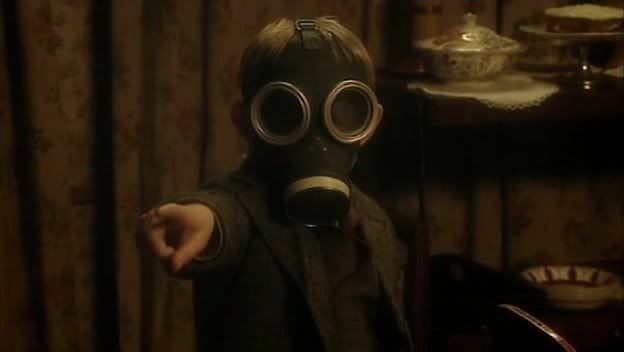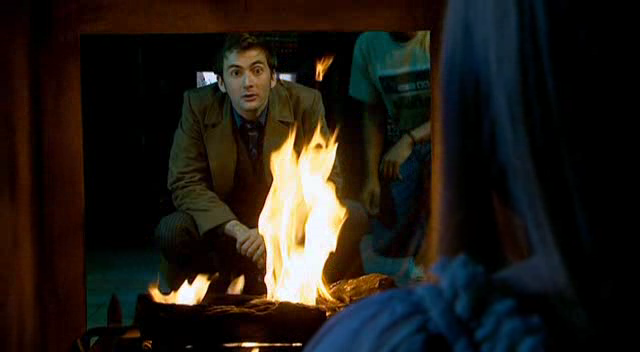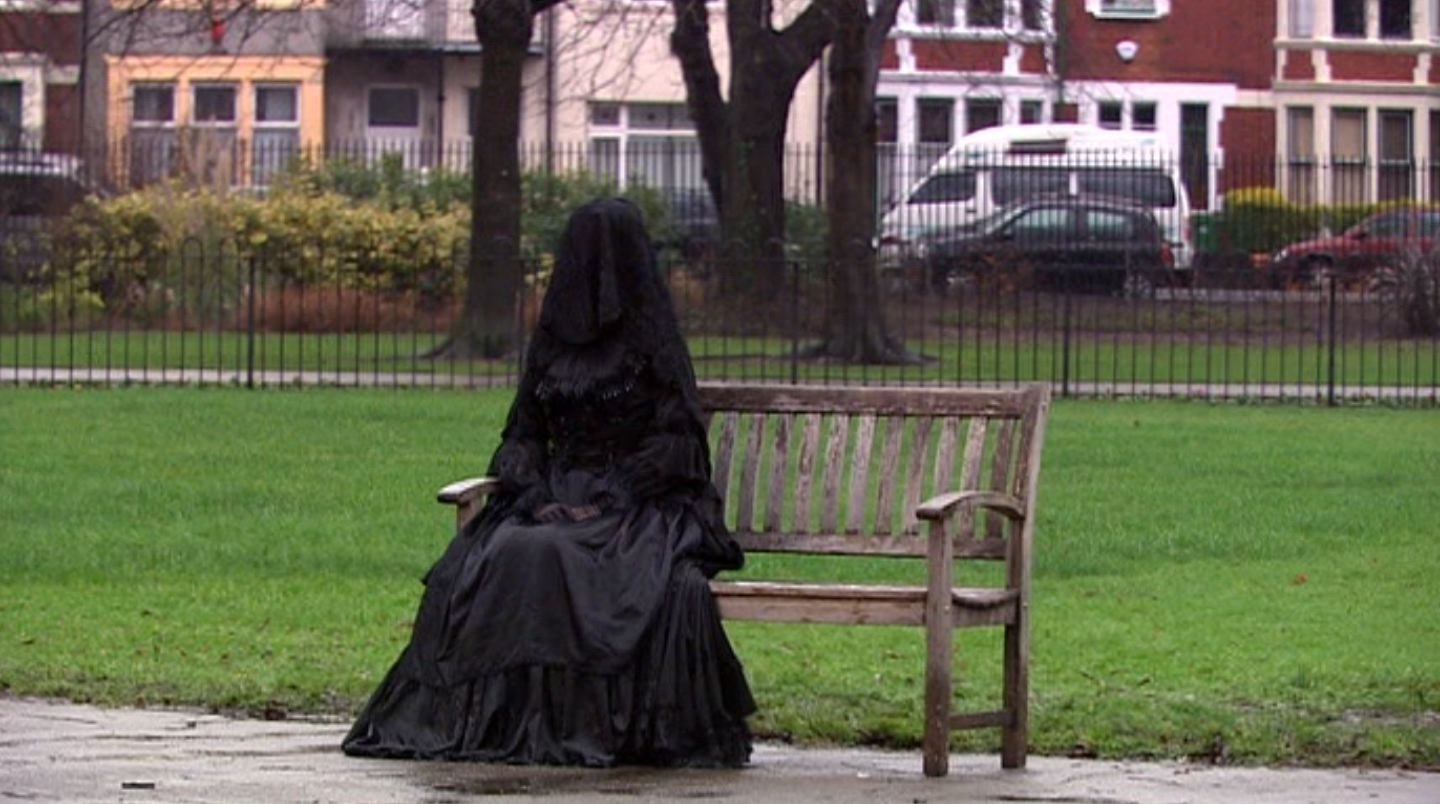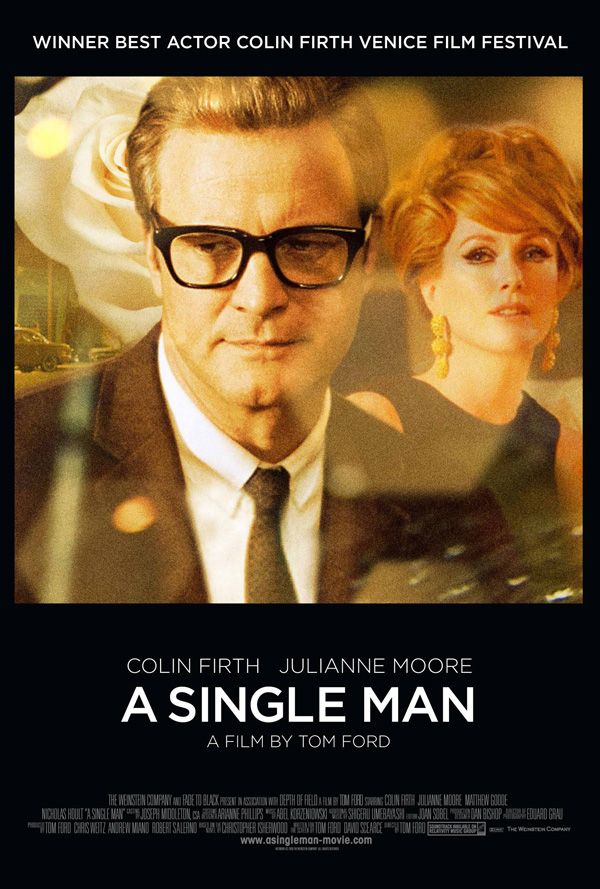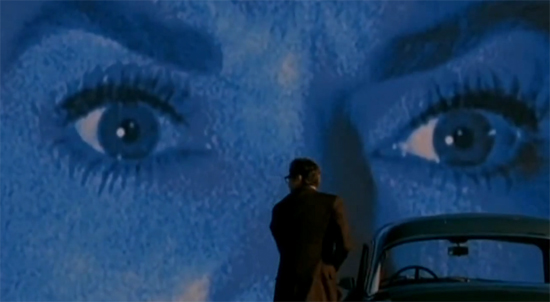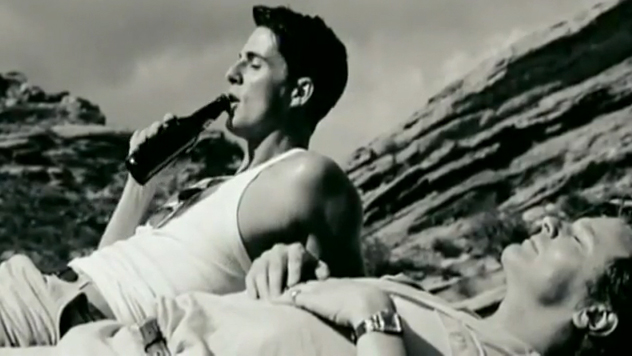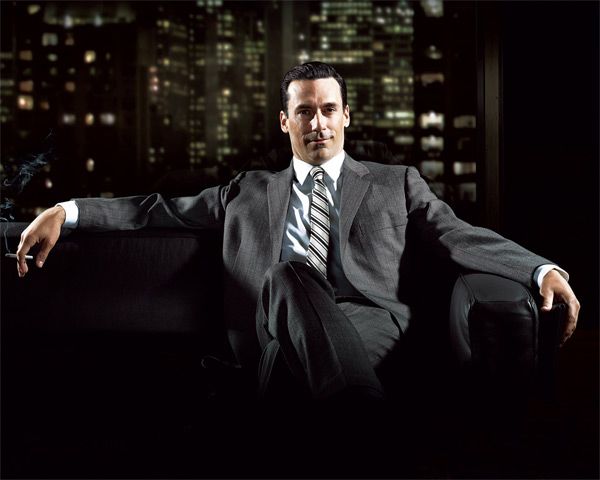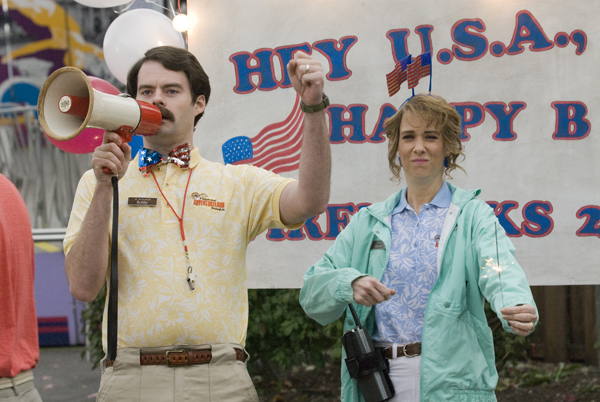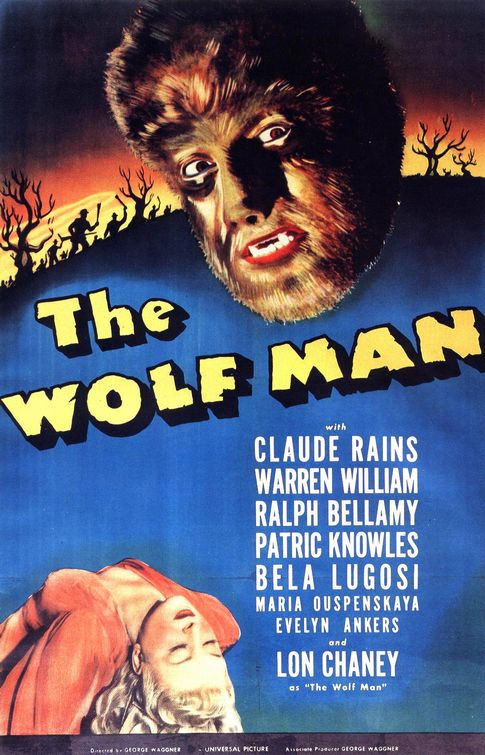 It's about ten years since we started to realise that it was fine to admit that we watched TV. Shows like The Sopranos, Six Feet Under, and 24 changed our expectations of what a television series could accomplish. Since then, several television networks have been striving to create their own must-see programmes and conquer the monopoly that HBO had, and still has to some extent. It used to be that only HBO had shows filled with sex, violence and foul language (Seemingly the holy trinity of the "It's not TV. It's HBO" ethos.). Now, networks like Showtime and FX are pushing boundaries. It's not just the quality of the shows themselves either. Advertising for televisions series has become more and more eye-catching, putting lackluster movie posters to shame.
It's about ten years since we started to realise that it was fine to admit that we watched TV. Shows like The Sopranos, Six Feet Under, and 24 changed our expectations of what a television series could accomplish. Since then, several television networks have been striving to create their own must-see programmes and conquer the monopoly that HBO had, and still has to some extent. It used to be that only HBO had shows filled with sex, violence and foul language (Seemingly the holy trinity of the "It's not TV. It's HBO" ethos.). Now, networks like Showtime and FX are pushing boundaries. It's not just the quality of the shows themselves either. Advertising for televisions series has become more and more eye-catching, putting lackluster movie posters to shame.We're going to be looking at several television series in detail, and talk about what they represent for the medium and how they compare to similar films. But to start with, we're going to look at each network and what they have to offer, and how they compare to each other
 ABC
ABCSex, Violence, Swearing?: No. ABC is family friendly. Even the more adult-themed shows feature no cussing. Of course, after the watershed there will be a bit of violence but nothing HBO-worthy
Past programmes: ABC is one of the big networks, airing comedy, drama and sci-fi since the 1960s. Their impressive roster includes Twin Peaks, Alias, Ellen, Happy Days, Sports Night, Spin City, Pushing Daisies, Boston Legal, Kingdom Hospital, The Middleman, and the original Battlestar Galactica. This barely touches on the golden oldies like Charlie's Angels and The Addams Family. But how are they doing now?
On the air: Definitely skewed towards the mainstream. On the decent end of the scale we have Nathan Fillion-starring crime drama Castle, and family dramedy Brothers and Sisters. They're also responsible for some of the biggest shows on TV. JJ Abrams' Lost, Grey's Anatomy, Desperate Housewives, the V remake, Ugly Betty, and Flashforward. But Lost, Grey's, Housewives, and Ugly Betty are all coming to an end. Flashforward and V were huge investments but have been critically scorned. Comedy-wise, ABC have Scrubs' creator Bill Lawrence's Cougar Town, starring Courtney Cox, and Modern Family
Upcoming: There's some promising darkness with Happy Town, in which a small town has it's first crime for months after a series of kidnappings, starring Sam Neill, Stephen Weber, and Amy Acker. Also coming soon is Copper, a less-starry, more generic sounding drama.
Must see TV?: Hmmm...Castle is good, silly fun, but it relies heavily on the chemistry between Nathan Fillion and Stana Katic. Otherwise we're really just waiting for Happy Town.
 AMC
AMCSex, violence, swearing?: Yes, indeed. While Mad Men is pretty restrained, owing to its period setting, Breaking Bad is very much an adult show.
Past programmes: Not much. AMC seems to have only started making their own shows fairly recently
On the air: Ah, here is where it gets interesting. In 2007 AMC aired Mad Men, the 1950s set drama about ad men in New York. Now gearing up for it's fourth series, Mad Men drew critical acclaim and has entered into pop culture thanks to it's style and superb cast. In particular, it has catapulted blog favourite Jon Hamm onto the A-List.
AMC followed Mad Men with Breaking Bad in 2008. Now on its third series, Breaking Bad quickly drew similar levels of adoration as Mad Men, albeit at a slower pace. Starring Bryan Cranston (The dad from Malcolm in the Middle and sleazy dentist Tim Whately on Seinfeld) as a high school chemistry teacher Walter White, who starts cooking crystal meth when he discovers he has cancer, it's edgy, violent, and utterly compelling. It's also given Mad Men a run for its money in the awards stakes.
The network also made the surprisingly decent mini-series reworking of The Prisoner, staring Jim Caviezel and Ian McKellen. There were rumours about expanding it to a full series, but at the moment it doesn't look likely
Upcoming: AMC have committed to a full series for Frank Darabont's adaptation of popular graphic novel series The Walking Dead. This shows an impressive level of confidence, and, if it works, could well lead the way for more TV versions of comic books.
Must see TV?: Yes. Mad Men and Breaking Bad are two of the best shows around.
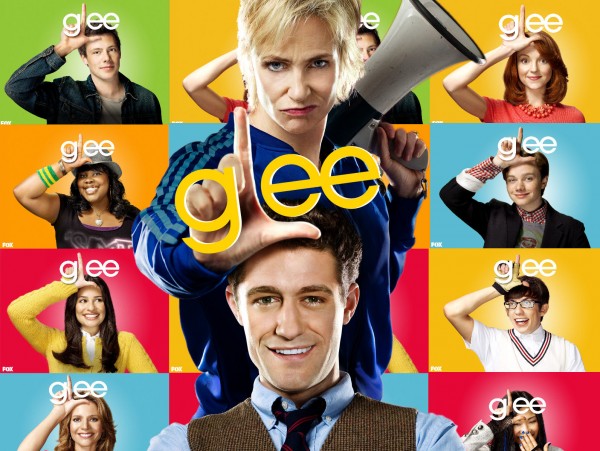 Fox
FoxSex, violence and swearing: No, it's not a cable company. The big hitters go by network guidelines.
Past programmes: Cancelled cult favourite Arrested Development, Malcolm in the Middle, That 70s Show, cancelled cult favourite The Tick, The Tracey Ullman Show, Judd Apatow's cancelled cult favourite Undeclared, our favourite cancelled cult favourite cartoon Futurama, King of the Hill, Ally McBeal, cancelled Nathan Fillion-starrer Drive, The OC, Prison Break, cancelled cult favourite Wonderfalls, cancelled cult favourite Dollhouse, The X-Files, Millennium, prematurely cancelled Terminator: The Sarah Connor Chronicles, and, perhaps most importantly, cancelled cult favourite Firefly. If you think you see a pattern here, well done. There's a reason that Fox have earned the hatred of nerds everywhere. They commission great series, then cancel them. They also own the rights to Buffy the Vampire Slayer and Angel, both of which were originally broadcast on The WB.
Currently airing: Keifer Sutherland-starring 24, which is finally coming to an end, solid hits such as House, Lie to Me, and Bones, JJ Abrams' erratically excellent sci-fi Fringe, and this year's monster success Glee. They're also still the big animation network, with The Simpsons, Family Guy, and American Dad.
Upcoming: Not much. Maybe people are finally starting to realise that Fox isn't the safest place to be. We don't understand why they would invest so much in shows that show so much promise, then shut them down before they have a chance to get going.
Must see TV?: It would be foolish to write off Fox, and chances are you're probably already watching Glee. They've shown they're very good at capturing zeitgest shows, such as The X-Files, 24, The OC, Prison Break (so good in season 1, so bad afterwards), and House. But the best shows they have are currently on FX
 FX
FXPast programmes: Not much of interest. FX has been around for a while as a spin-off of Fox, but has only recently been producing adult-themed, acclaimed shows. The first big one was The Shield, followed by the just-finished Nip/Tuck. Also no longer running are Courtney Cox tabloid drama Dirt, Andre Braugher-starring Thief, and Eddie Izzard/Minnie Driver con-men show The Riches.
Currently airing: Denis Leary's controversial firefighter drama Rescue Me has proved consistently popular and is going into season 6, and acclaimed legal drama Damages, starring Glenn Close, is currently in its third season. The big new things are the excellent biker crime drama Sons of Anarchy, starring Ron Perlman, which has just finished its second season, and just-premiered Justified, based on an Elmore Leonard book and starring Timothy Olyphant as a US Marshal forced to return to his home town. There's also the fantasy football comedy The League, and offbeat animated comedy Archer.
Upcoming: Not much at the moment, with Justified only very recently having started. Sons of Anarchy, The League, and Archer have all been given another season.
Must see TV?: Yes. Sons of Anarchy is very good, uncompromising television. Justified has a lot of hype and pedigree. However, Rescue Me went off the boil a while ago, and Damages is starting to get some iffy reviews.
Well that's it for part one. See you soon for part 2, where we'll look at NBC, HBO, and Showtime!












